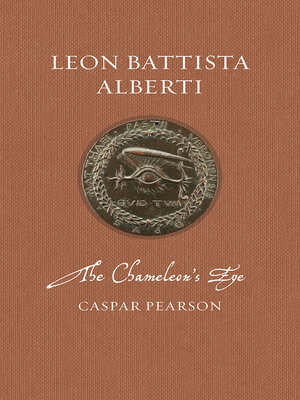
Sign up to save your library
With an OverDrive account, you can save your favorite libraries for at-a-glance information about availability. Find out more about OverDrive accounts.
Find this title in Libby, the library reading app by OverDrive.



Search for a digital library with this title
Title found at these libraries:
| Library Name | Distance |
|---|---|
| Loading... |
A new account of the sui generis Renaissance writer and architect Leon Battista Alberti.
One of the most brilliant and original authors and architects of the entire Renaissance, Leon Battista Alberti had an output encompassing engineering, surveying, cryptography, poetry, humor, political commentary, and more. He employed irony, satire, and playful allusion in his written works, and developed a sophisticated approach to architecture that combined the ancient and modern. Born into the Florentine elite, Alberti was nonetheless disadvantaged due to exile and illegitimacy. As a result, he became an acute analyst of the social institutions of his time, as well as a profoundly existential writer who was intensely preoccupied with the human condition.
This new account explores Alberti's life and works, examining how his personal and intellectual preoccupations continually pushed him to engage with an ever-broader spectrum of Renaissance culture.
One of the most brilliant and original authors and architects of the entire Renaissance, Leon Battista Alberti had an output encompassing engineering, surveying, cryptography, poetry, humor, political commentary, and more. He employed irony, satire, and playful allusion in his written works, and developed a sophisticated approach to architecture that combined the ancient and modern. Born into the Florentine elite, Alberti was nonetheless disadvantaged due to exile and illegitimacy. As a result, he became an acute analyst of the social institutions of his time, as well as a profoundly existential writer who was intensely preoccupied with the human condition.
This new account explores Alberti's life and works, examining how his personal and intellectual preoccupations continually pushed him to engage with an ever-broader spectrum of Renaissance culture.







